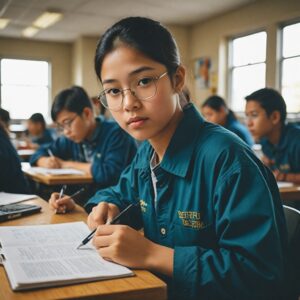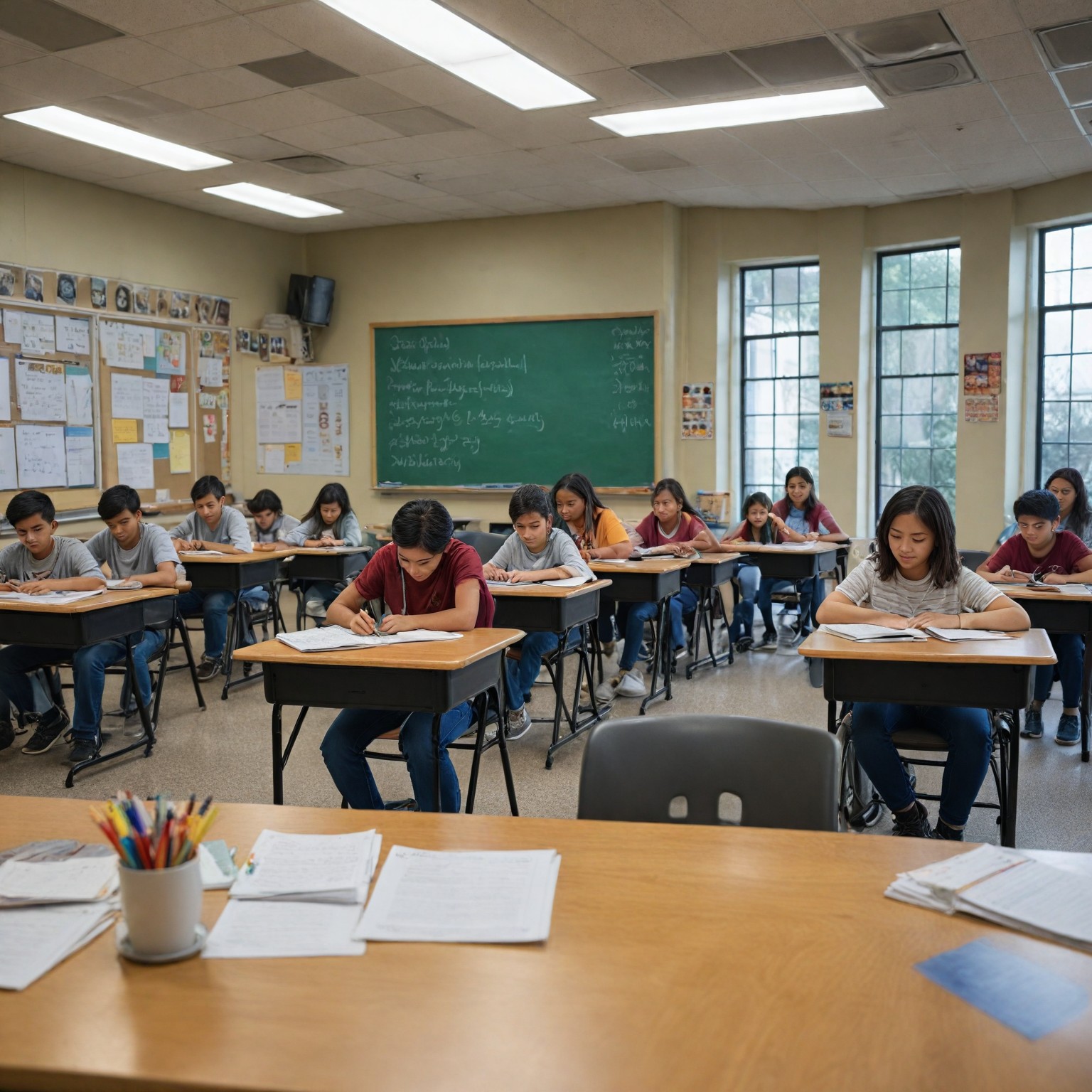New and exciting AI chat tools like ChatGPT have made a splash at schools across the country, including Lick-Wilmerding High School, drawing the curiosities of both teachers and students. However, more than a year after its popularization, students still lack structure around the use of generative AI, which continues to raise concerns for adults in the LWHS community about its longterm impacts.
First coined in 1955 at an academic conference, the term Artificial Intelligence, often shortened to simply “AI,” encompasses a wide range of definitions. Within the LWHS hallways, the term AI is generally in reference to generative AI like Claude or, most famously, ChatGPT.
ChatGPT, a chatbot created by OpenAI, came into existence on November 30, 2022, although most students did not start using it until the following year. According to InsideHigherEd, 22% of students were using generative AI in the spring of 2023. By the fall of 2023, the number had risen to 49%.
Over roughly a year and a half, a general attitude of concern surrounding AI in classrooms has arisen. The simple Google search “is ai good or bad for education?” yields thousands of chatrooms, forums and articles, all undecided on whether AI will be inevitably used as a tool for students to cheat or as a replacement for skills traditionally learned in the classroom.
For some, the introduction of AI into the classroom harkens back to similar moments from history. LWHS math teacher Avery Pickford is a subscriber to this thought. “When calculators first came out there was this fear from teachers that ‘oh my gosh kids are not going to be able to do math, they are going to go to their calculator for everything’” he said. The challenge that lies ahead is integrating AI as a tool similar to its predecessors.
As it stands, the gap between current student AI use and the overall potential for AI in the classroom lies in the lack of a general support system for it. In a webinar, Sal Khan, the founder of Khan Academy, discussed his distaste for AI currently used in the classroom. “I was bummed because ChatGPT is a very general purpose tool, not built for education, it is very obvious you can use it for cheating. There are no guardrails on it.”
Claudia Andrade, a LWHS science teacher, has begun to build restrictions around AI in her classroom. “I send the message that yes, you can use [generative AI] but you have to cite the work and know how to use it,” she said.
However, no matter the restrictions and guidelines, at this point, students who are overworked and stressed turn to AI as a way to reduce their workload. Several students reported using ChatGPT and other AI to partially write parts of homework assignments, summarize long readings and for other miscellaneous uses.
Thijs Simonian ’24 sees a potential for AI use in a particularly unique way. “I think of it being more practical as a tool to add onto existing things,” he said.
Ian Arenas, a photography teacher at LWHS, noted how he himself sees the appeal of using AI to cut corners in times of stress. “[Using generative AI] is often the mentality of ‘this is good enough for right now. I made it through this. Next time, I’ll make sure I have more time.’”
For many, the increase in AI use poses a loss of a certain level of humanness in the education process. The concern is that when a person continually uses AI to fully generate a piece of work, they lose not only the actual skill of creating the work but also the skill of ideating the work. For example, if a student uses ChatGPT to write a paper about a book, they are not only losing actual writing ability but also the skill of articulating thoughts, feelings and emotions onto a page.
To educators, the potential of this loss is alarming. “To be an educated person isn’t about memorizing every single detail in a classroom, it’s about the ability to have that critical thinking and to develop those parts of yourself by doing the hard work,” Andrade said.

As the classroom is meant to prepare students for life beyond its walls, the concern about AI use goes further than just its impact on classwork completion. “I worry less about what it means for a particular grade, and more that over-reliance on AI has the potential to reduce the cognitive function necessary to function in the world.” LWHS history teacher Shaun Lopez said.
Uncertain as to what a future where AI is better integrated with classroom content will look like, Pickford said, “I hope we don’t go in a direction where writing in your own voice becomes less important, I hope we don’t go in a direction where making sense of hard mathematical ideas becomes less important.”
As AI has continued to prove itself a constant in the classroom, educators like Pickford have clarified what it means to learn. “[the increase of AI] forces us as teachers to continue to articulate what the important things are,” he said.






